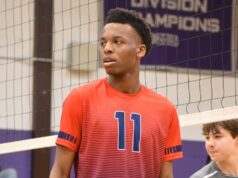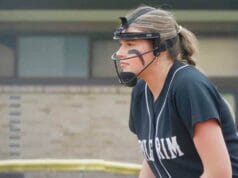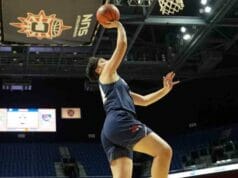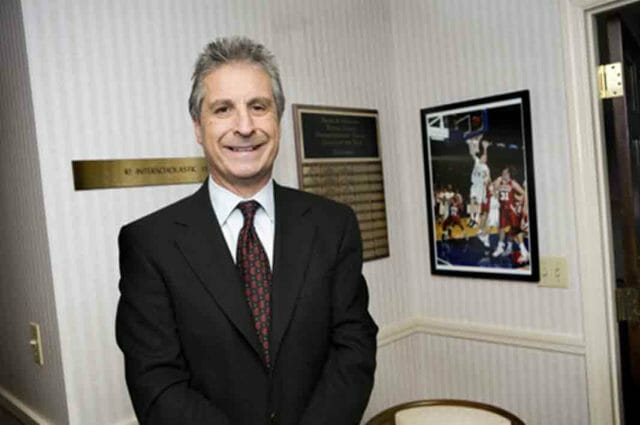
After 14 years of serving as Executive Director of the R.I. Interscholastic League, Tom Mezzanotte is retiring effective July 31.
Recently, Yurview caught up with Mezzanotte for a wide-ranging Q&A session that focused mainly on his tenure as the primary overseer of the RIIL:
Brendan McGair: What was your involvement with the Interscholastic League prior to becoming Executive Director?
Tom Mezzanotte: I was on the Principals’ Committee on Athletics as well as the Director of Football. At the time, I was the principal at Classical High School. Those were the good old days when Msgr. [Robert] Newbold was [RIIL Executive Director]. When I sat on the Principals’ Committee, I saw the job that Msgr. Newbold did and said it was a job that I never wanted. Lo and behold, I became the chairman of the Principals Committee before becoming Executive Director.
It was a different world back in the 1990s. Every member of the Principals Committee was a director of a sport. You had to be heavily involved with your sport … scheduling games, organizing playoffs, and working with coaches and athletic directors.
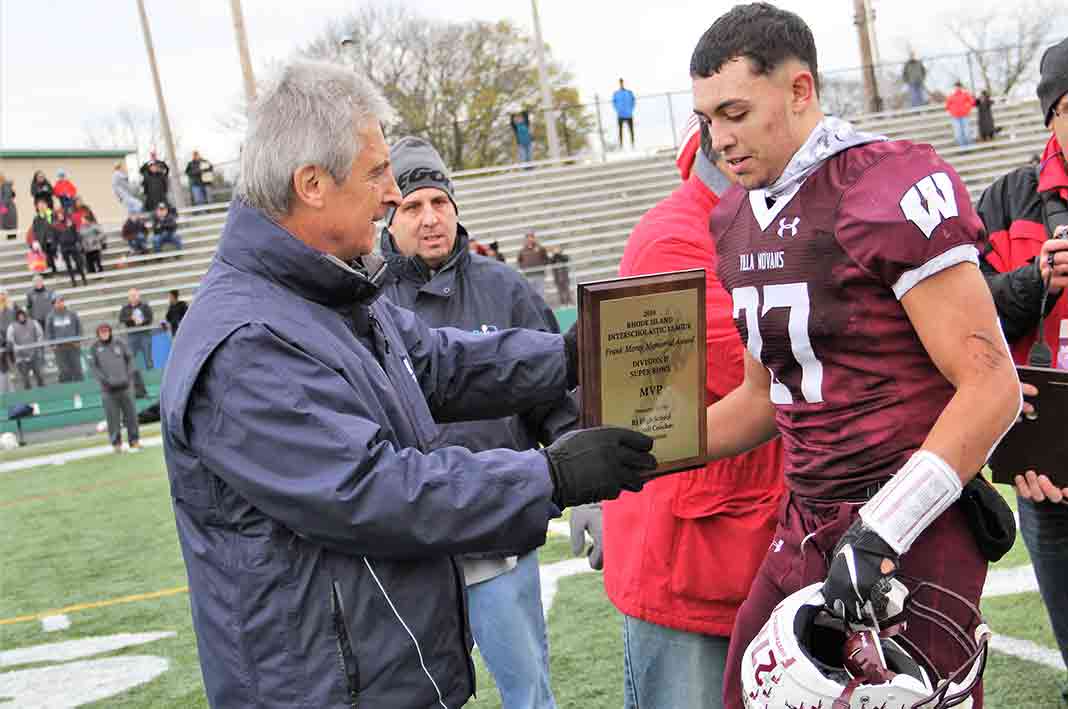
BM: Before taking over as RIIL Executive Director, did you receive any advice from your predecessor, the late Dick Lynch?
TM: The most important thing Dick told me was to take care of the kids. That was always his mantra.
BM: What has been your favorite part of your job as RIIL Executive Director?
TM: To me, it’s rewarding to see a sport transition … kids preparing in the summer for the fall season before going through the playoffs. Plus, the great stories you hear about coaches and student-athletes.
This is a story I’ve told a few times. I remember going to an outdoor track meet. You see so many things going on at once. I noticed a distance race. Not many people watch the race from beginning to end and such was the case with me. Toward the last lap, I saw two gentlemen who were far behind the leaders. There they were, trying to run hard so they wouldn’t be the last one in the race. One kid went ahead, then the other kid went ahead. It was a battle. They were working their tails off. When the race was over, they both hugged each other. That’s the significance of sports … not winning or losing but trying your best and taking the reward from that.
BM: Let’s go to the flip side of the coin. What’s been the toughest part of your job?
TM: You have so many things going on at once. Issues are always coming into the office. When a person wants to speak with you … as insignificant as it may seem to me, it may mean a major difference to that person. I try to treat every issue and phone call with the utmost importance, but trying to satisfy everyone is very difficult.
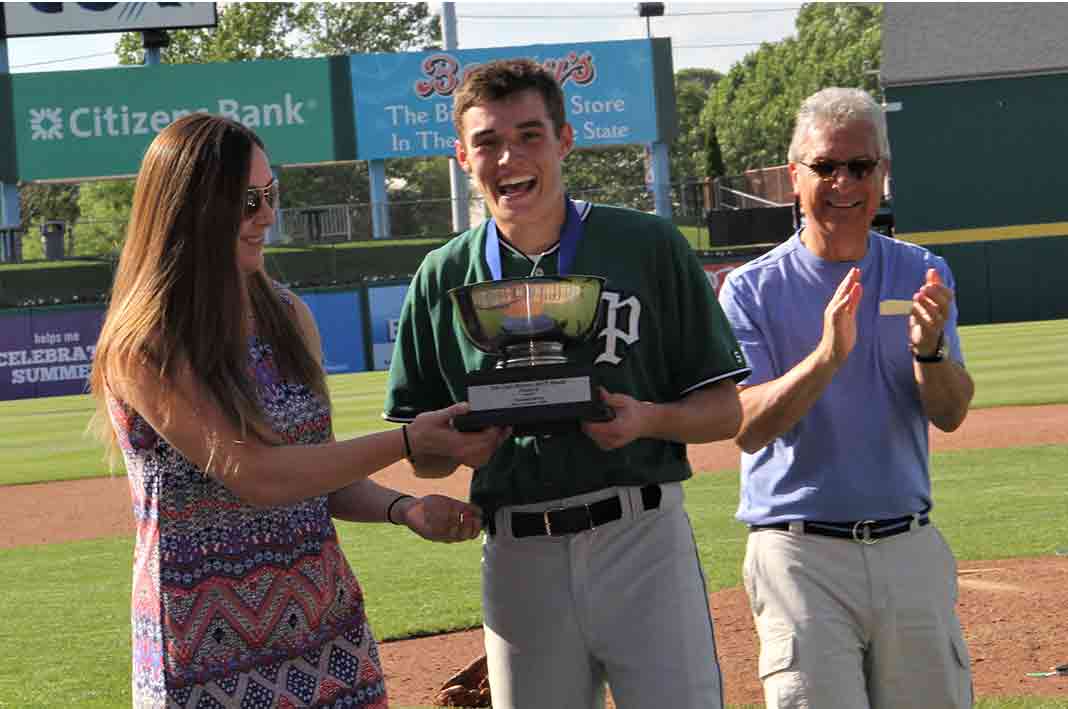
BM: How proud are you to see the league grow in the fashion that it has, be it through social media or attracting new sponsors?
TM: We’ve had tremendous growth, but a lot of it has to do with our affiliation with the National Federation of State High School Associations. Learning and listening to other states, not just those in New England, has helped us tremendously. I also think the involvement of our athletic directors has made a significant difference in our association. Working hand-in-hand and talking to them on a daily basis has helped us to better understand what the league needs to do in order to bring it to the next level.
In any position of leadership, you try to improve the best things you do. I think we’ve done a pretty good job with that.
BM: How much has realignment – the process of placing teams in divisions – changed during your RIIL tenure?
TM: When I talk to colleagues from South Carolina and Ohio, they’ll ask if realignment is much of an issue in our state. It’s an issue in every state. We put a formula together, we list the schools, and decide how many divisions we need. We try to create a competitive balance within each division. Sometimes, there are intangibles such as having a great group of seniors that graduate and you start all over again. You had a good record with those seniors, but now you’re in a higher classification with a new group. That’s the challenge.
We give schools the opportunity to move up or down, but can you satisfy everyone? We try, but in many cases, you can’t.
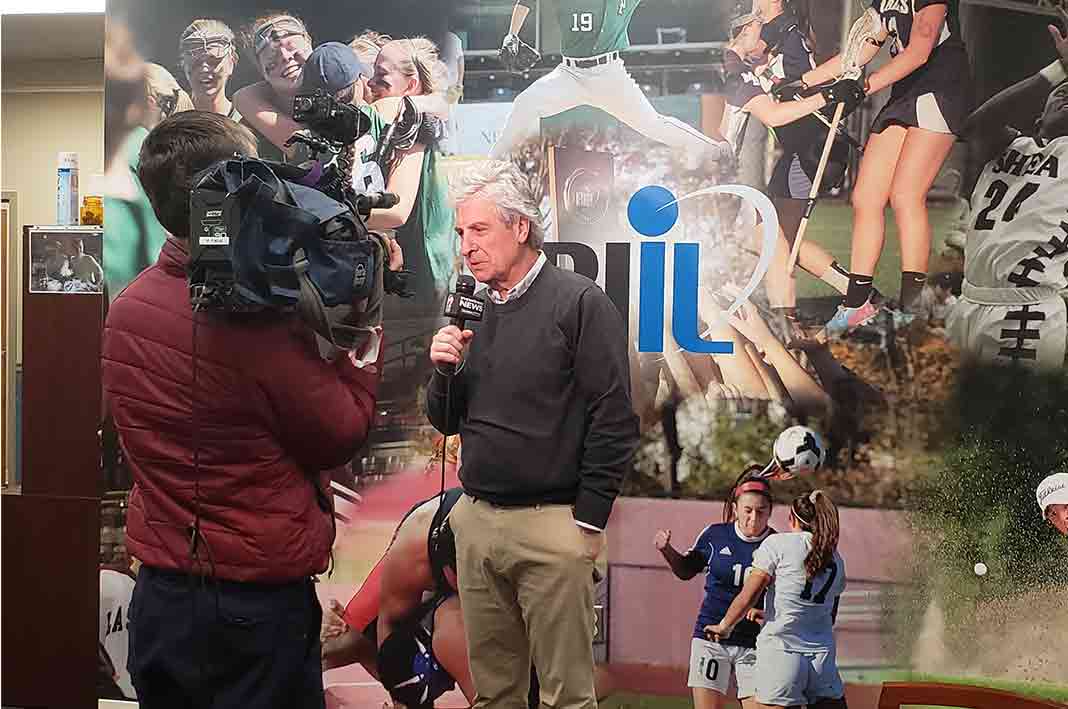
BM: How pleased were you to see Mike Lunney, who as RIIL Assistant Executive Director has been your righthand man during the past nine years, succeed you as Executive Director?
TM: In the old days, it used to be a superintendent or principal who was Executive Director. Things are changing. More and more, we’re leaning on athletic directors and the intangibles they bring to the job. Mike has been an AD and a coach.
Mike and I will spend many days conversing about an issue. We’ll throw things back and forth at each other. I think he’ll do an outstanding job. He’s got a lot of leadership qualities and a lot of good ideas.
BM: Some people subscribe to the belief that you hope to leave a place in a better state than when you inherited it. Is that something you feel is the case as your time as Interscholastic League Executive Director draws to a close?
TM: It’s a hard question to answer, but things change. When I took over back in 2004, our priorities were different. We just wanted kids to have an opportunity to play sports. That was the goal and that’s still the goal today. In many ways, you want to make sure you’re leaving the job at the right time and when things are good. I took over a well-oiled machine and hope that when Mike takes over, we continue to provide the kind of leadership that allows the league to expand even more.




